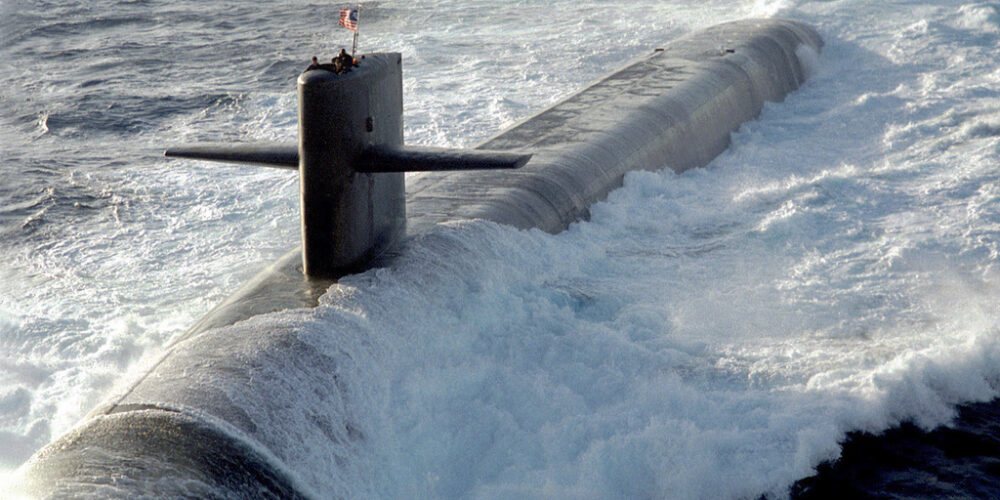A lot of decent people believed that when Donald Trump was voted out of office and replaced by Joe Biden things would change for the better in the United States. The left-liberals, Sanders and others, even believed that Biden would lean to the left and that there would be a fundamental break with Trump’s domestic and foreign policies.
After nine months in office, nothing has fundamentally changed—nor will it. The Democratic Party has refined the art of signalling left and turning right.
Being in office does not mean being in power. Real political power lies with those who have economic power; in the United States this means the military-industrial complex, in alliance with the corporate media, which exercises political control through the institutions of the state, such as the military.
The recent “AUKUS” agreement between the United States, Britain and Australia (a client state of the United States), which would mean Australia getting its hands on nuclear-powered submarines, armed potentially with nuclear weapons, is a case in point. Australia had previously agreed to buy submarines from France; that contract was torn up, and the Australians have now agreed to buy nuclear submarines from the United States.
This is a further proliferation of nuclear arms, reflecting the growing danger to world peace posed by the United States and its allies. It is also a stepping up of the expanding military strategy of surrounding China militarily and using economic sanctions and economic restrictions to prevent China pushing aside America’s global economic dominance, to prevent the emergence of a multi-polar world.
After yet another defeat, this time in Afghanistan—despite spending $300 million a day on the Afghan war alone, while the mass of American citizens go without medical care, with poor education, mass homelessness, and chronic low pay and poor working conditions—Biden has increased the country’s military budget to $715 billion, the largest in American history.
At the same time working people experience ever-declining living standards, collapsing infrastructure, and a poor or non-existent health service. Biden has agreed to spend only $3½ trillion dollars over ten years in his infrastructure plan. This would result in spending twice as much on the military as on the people’s needs—a clear indication of the priorities of the Biden government and of the American state.
And not alone has there been a stepping up of Cold War rhetoric and political action in regard to the economic sanctions but there is clear evidence of a growing militarisation of the South China Sea, linked to the ideological campaign against China, designed to create the necessary fear as part of the conditions for a further military build-up and military aggression against China.
The Biden government has followed its predecessor’s strategy in relation to the “Quadrilateral Security Dialogue” (QUAD), an alliance of the United States, Japan, Australia, and India, which had been dormant for nearly a decade. Trump reactivated it in 2017 as an “Asian NATO,” with the specific role of increasing military pressure on China. On 24 September Biden convened a summit of this alliance and has stated that he wants to make QUAD the “core dynamic” of its Asia policy.
The AUKUS pact is the latest move in this deepening of the US strategy for a new Cold War. It is a pact designed to deepen diplomatic, security and military co-operation in the Indo-Pacific region, including co-operation on cyber-warfare, underwater capabilities, and long-range strike capabilities. AUKUS also includes a plan to set up an Australian nuclear-powered submarine fleet, with long-range capabilities.
The United States has built a dense network of naval and air force bases and has intensified its military build-up in the island chains along the Western Pacific. It has secured the co-operation of mutual interests and support from its closest allies, including Japan and Australia, for them to strengthen their naval and air forces and missile systems.
The United States has renamed its Pacific Command the Indo-Pacific Command. It has absolutely nothing to do with peace in the region: it is simply for encircling China with an iron fist. This military build-up is not alone a danger to world peace but is a significant contributor to greenhouse gases and thus to the growing environmental crisis that humanity faces.
The Irish government has climbed on this new Cold War bandwagon, stating at the UN General Assembly that we need to protect “free speech” and oppose the rise of totalitarian states (without naming China). The government is fully committed to the EU’s military strategy of “Permanent Structured Co-operation” (PESCO).
Irish neutrality is now but a figment of their imagination. This state is firmly wedded to and involved in this new Cold War, despite the fact that most of our people would like to see neutrality enshrined in the Constitution of Ireland.
China’s strategy in regard to the international situation and the role of the United Nations was best summed up by its foreign minister, Wang Yi,when he stated that China would uphold multilateralism to safeguard world peace and stability and that “the UN-centred international system and basic norms in international relations based on the purposes and principles of the UN Charter are the pillars of multilateralism.”






